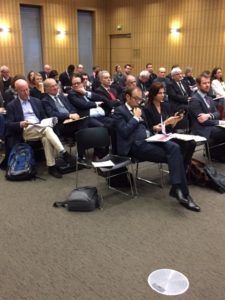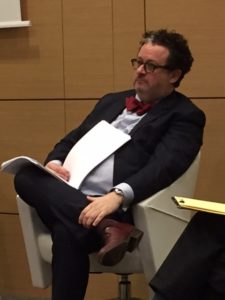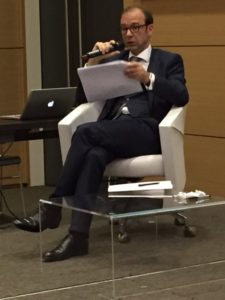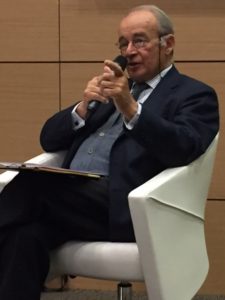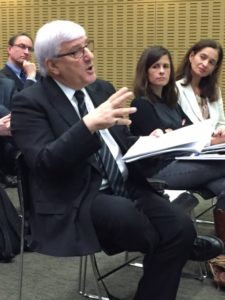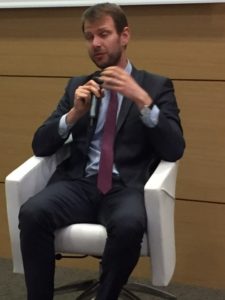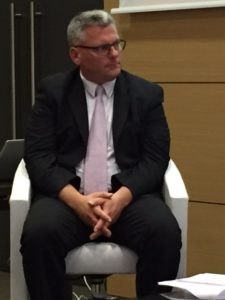Jochen Bauerreis gave a lecture on this current topic on the occasion of a colloquium organized by the Collège des Avocats Spécialistes en Droit de l’Arbitrage (CASDA) in partnership with the Centre Interprofessionnel de Médiation et d’Arbitrage (CIMA). The focus of this event was on:
„The adaptation of contracts to the new requirements of the course of trade. Keep your contracts under control (renegotiation, ceasing of the basis of transaction, price adaptation, unfair terms)“
The colloquium took place the 25th of November 2016 in Lyon (regional Chamber of Industry and Commerce) and was opened with the morning lectures of Jean-Marc MOREL, chairman of the Ordre des Experts Comptables Rhône Alpes, Bruno CRESSARD, lawyer and former chairman of the bar association of Rennes, current chairman of the CASDA, and Thierry BONNET, lawyer at the bar association of Lyon and chairman of the arbitration council of the CIMA ).
They were followed by Christine LECUYER-THIEFFRY, lawyer at the bar association of Paris, who held an introductory speech concerning the main points of the reform.
The first round table on the topic “The answer of arbitration to the challenges of the new contract law” was led by Louis DEGOS, lawyer at the bar association of Paris and member of the CNB. First, Thomas DESCHRYVER, lawyer at the bar association of Lille, gave a lecture on the subject of “good faith”, followed byBéatrice FAVAREL lawyer at the bar association of Marseille, who presented the issue of price determination and by Alain VIDAL NAQUET lawyer at the bar association of Marseille, who analyzed the theory of “frustration of contract”, a key element of the reform which caused numerous discussions.
The second round table was held around the subject of the “flexibility of arbitration vs. legal security” under the direction of Christoph RADTKE, lawyer at the bar association of Lyon. Romain DUPEYRE lawyer at the bar association of Paris, opened the discussion by addressing the issue of the validity and the efficiency of arbitration clauses under the new law. He was followed by Denis BENSAUDE lawyer at the bar association of Paris, who discussed the topic of the “tailored arbitration clause”. This second round table was closed by the lecture of Jochen Bauerreis, lawyer at the bar association of Strasbourg, who presented a synthesis on the question of the attractiveness of the French law follwing the reform of the law of obligations.
Jochen Bauerreis dealt mainly with the question of role that the French law should play in the future in the negotiation and drafting of international contracts.
The public that attended the colloquium had thus the opportunity to learn about the main aspects of the reform of the law of obligations in regard with the contractual practice and litigation and arbitration practice from experienced practitioners specialized in arbitration law.
The following subjects were deeply analyzed:
- Judicial scrutiny of unfair terms
- Judicial scrutiny of price fixing in framework agreements and service contracts
- Freedom of contract vs. statute law
- Principle of “good faith” in business contracts
- “Frustration of contract” and hardship clauses
- Arbitration agreements after the reform
- Role of the judge (state judge and arbitrator) in the application of the new contract law



